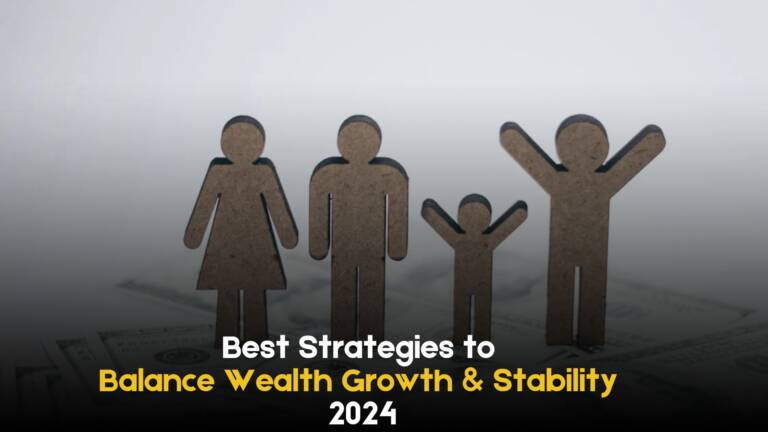Managing personal finances can be the cornerstone of leading a secure, fulfilling life. It encompasses various activities, from budgeting and saving to investing and planning for the future. Personal finance is about making informed decisions with your income and assets to achieve your goals, whether short-term objectives or long-term financial freedom. This article delves into the critical aspects of personal finance and highlights strategies for a strong financial foundation.
What is Personal Finance?
Personal finance involves managing one’s income, expenses, investments, and savings to reach financial security and independence. Beyond money management, it empowers individuals to make decisions aligned with their goals, whether it’s saving for a vacation, purchasing a home, or preparing for retirement. Unlike business finance, personal finance deals specifically with individual goals and daily monetary needs.
Understanding personal finance also means acknowledging that every financial decision impacts your overall financial stability and future well-being. With effective personal finance strategies, you gain a clearer path toward achieving financial independence and peace of mind.
The Importance of Personal Finance
Personal finance knowledge provides several key benefits:
- Financial Stability: Effective personal finance management helps build a foundation for financial stability, allowing you to meet everyday needs, plan for the future, and handle unexpected events without distress.
- Goal Achievement: Personal finance is about prioritizing and aligning resources with life goals, whether saving for higher education, retirement, or achieving a dream of owning a home.
- Minimized Financial Stress: Understanding and managing personal finances reduces stress, as you have a clearer perspective on your financial standing, obligations, and future path.
- Financial Independence: Personal finance literacy empowers individuals to take charge of their financial lives, promoting independence and decision-making aligned with their values.
Essential Components of Personal Finance
A solid personal finance strategy integrates these core elements to ensure comprehensive financial planning:
a) Budgeting
Budgeting is foundational to financial management, allowing you to track and control where your money goes. By categorizing income into spending categories, you maintain oversight on what is necessary and what can be adjusted or reduced. The 50/30/20 rule—allocating 50% to essentials, 30% to wants, and 20% to savings—offers a practical approach for managing income.
Creating a budget is also about finding balance. For example, if your income increases, it’s important not to increase spending on luxury items but instead focus on debt repayment, savings, or investments.
b) Saving and Building an Emergency Fund
A well-defined saving strategy provides both security and peace of mind. Emergency funds, ideally covering three to six months of living expenses, offer a cushion for unexpected events like job loss or medical emergencies. Regular saving plans—such as automatic transfers to a dedicated savings account—help build discipline and consistency in growing your financial resources.
Emergency funds differ from general savings, as they should be accessible without penalty. This accessibility protects other savings or investments from premature withdrawals during tough times.
c) Debt Management
Debt management is crucial to achieving financial stability, as high-interest debts (like credit card debt) can quickly accumulate and limit financial options. Two effective strategies for paying off debt are:
- Debt Snowball Method: Focus on paying off smaller debts first to build momentum.
- Debt Avalanche Method: Prioritize debts with the highest interest rates to minimize interest payments over time.
Understanding debt terms, interest rates, and monthly payments helps you navigate and manage debt more effectively. For instance, making extra payments on high-interest debts can dramatically reduce overall costs.
d) Investing
Investing is essential for wealth-building and achieving long-term financial goals. Common investment options include:
- Stocks: Offer ownership in a company, with the potential for high returns but also significant risks.
- Bonds: Often viewed as lower-risk investments compared to stocks, bonds provide fixed interest payments.
- Mutual Funds and ETFs: Pooled funds that allow diversified investments in various assets, offering a more balanced risk-reward ratio.
- Real Estate: Property investments that can offer steady income and value appreciation over time.
Investing wisely requires an understanding of risk tolerance, time horizon, and the potential for compounding returns. Starting early maximizes growth potential, allowing time for investments to compound.
e) Retirement Planning
Retirement planning is vital for ensuring financial security in later years. By starting early with retirement accounts, like 401(k)s or IRAs, you allow your savings to grow tax-deferred or tax-free, depending on the account type. Contributions to retirement plans accumulate over time, ensuring adequate funds for a comfortable retirement.
Many employers offer matching contributions to retirement plans, providing a substantial incentive to participate. Knowing how much to save, assessing retirement goals, and selecting the right retirement accounts help align savings with future lifestyle expectations.
f) Tax Planning
Tax planning involves using strategies to minimize tax obligations. Techniques like contributing to pre-tax retirement accounts, using deductions or credits, and investing in tax-free accounts help reduce taxes owed. This strategic approach allows individuals to keep more of their income, optimizing funds available for other financial goals.
Tax planning also includes understanding the impact of investments and capital gains on annual taxes, and ensuring tax-efficient decisions.
Financial Literacy and Its Role
Financial literacy is a foundational aspect of personal finance, enabling individuals to understand how money works, manage it effectively, and make informed decisions. Ways to build financial literacy include:
- Reading and Learning: Books, articles, and reputable sites provide valuable insights.
- Financial Courses: Online courses offer practical knowledge on budgeting, investing, and more.
- Professional Guidance: Financial advisors provide tailored advice and insights.
Through financial literacy, individuals gain the skills to analyze, make informed decisions, and feel confident about their financial choices.
Setting SMART Financial Goals
Setting SMART (Specific, Measurable, Achievable, Relevant, Time-bound) goals fosters discipline and direction in personal finance. Financial goals can be categorized as follows:
- Short-Term: Examples include building an emergency fund or saving for a vacation.
- Medium-Term: Goals like saving for a down payment or paying off debt fall under this category.
- Long-Term: Retirement or higher education for children often represents long-term goals.
Clear goals offer a roadmap and motivation for adhering to financial plans.
Insurance as Financial Protection
Insurance provides a safeguard against unpredictable losses and offers stability. Key types include:
- Health Insurance: Covers medical costs, protecting from high out-of-pocket expenses.
- Life Insurance: Supports dependents financially in the event of one’s passing.
- Home and Auto Insurance: Provides coverage for property damage and accidents.
Insurance minimizes financial disruptions, ensuring life’s unpredictability doesn’t impact financial stability drastically.
Overcoming Financial Challenges
Despite the importance of personal finance, individuals may face challenges such as:
- Impulse Spending: Budgeting and mindful spending can reduce the tendency for unnecessary purchases.
- Debt Accumulation: Managing debts proactively, minimizing high-interest debt, and paying on time is essential.
- Knowledge Gaps: Financial literacy efforts help individuals make informed decisions and avoid financial missteps.
Facing these challenges with a strategic approach ensures a stronger, more resilient financial plan.
Financial Management Tips for Stability
Building long-term financial health is possible by adopting habits like:
- Automating Savings and Investments: Automatic transfers to savings or investments ensure consistent growth.
- Regularly Reviewing Goals and Budgets: Life changes require adaptation, and regular reviews keep plans aligned with new circumstances.
- Avoiding Lifestyle Inflation: Keeping expenses stable despite income increases helps bolster savings and investments.
Practicing these habits ensures a disciplined approach to long-term financial well-being.
The Impact of Financial Stability on Overall Health
Financial security significantly impacts mental and emotional well-being. Money worries can lead to stress, impacting personal relationships and productivity. Conversely, financial stability brings peace of mind, allowing individuals to pursue goals and nurture relationships without monetary concerns.
To further highlight the importance of personal finance, consider its role in fostering economic resilience at both individual and community levels. People with strong financial knowledge can navigate economic downturns, avoid predatory lending practices, and contribute to economic stability by making thoughtful spending and investment decisions. Additionally, personal finance planning equips families to pass down wealth and financial literacy to future generations, creating a cycle of improved financial health and opportunity.
Practicing sound personal finance also encourages a culture of accountability and financial prudence, reducing reliance on credit and enabling debt-free living. By cultivating these habits, individuals contribute positively to the economy, mitigate financial inequality, and ensure broader financial inclusion, supporting overall economic growth and stability.
Conclusion
In sum, the cumulative impact of personal finance extends beyond individual gain—it fosters an educated, financially responsible society equipped to handle uncertainties while promoting sustainable prosperity for all.
Personal finance is a pathway to financial security and independence, equipping individuals to make thoughtful financial choices, achieve goals, and live fulfilling lives.
A strong personal finance strategy not only shapes an individual’s financial health but also enhances decision-making skills, encouraging a proactive approach toward life goals and unexpected challenges. Financially educated individuals are more likely to build emergency funds, manage debts effectively, and grow their wealth through informed investments.
By practicing diligent financial planning and remaining adaptable to changing financial landscapes, individuals not only secure their futures but contribute to the overall stability and resilience of their communities, promoting a healthier and more sustainable economic environment for all.




Leave a Comment